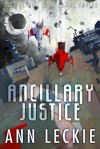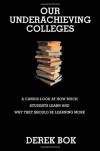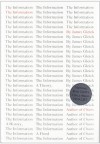Currently reading
McGlue
Knife Fight and Other Struggles
Far from the Tree: Parents, Children, and the Search for Identity
The Good Lord Bird
Ancillary Justice
Our Underachieving Colleges: A Candid Look at How Much Students Learn and Why They Should Be Learning More (New Edition)
Dissident Gardens
Nightmare Movies: Horror on Screen Since the 1960s
The Information: A History, a Theory, a Flood
Complete Novels
 Told from the perspective of a very dislocated, long-suffering, smart-ass adolescent, Alexie's book initially--and at times throughout--can seem to echo as much as elaborate upon its narrator's sensibilities. Certain jokes fall flat on (almost-)forty-year-old ears, some insights (and the way they're revealed and described) can seem a tad hokey. And the plot can seem a bit ... well, after-schoolish -- this abused boy turns to violence, then--as a consequence?--begins flipping through time and personal perspectives, to understand violence and its impact from a variety of angles.
Told from the perspective of a very dislocated, long-suffering, smart-ass adolescent, Alexie's book initially--and at times throughout--can seem to echo as much as elaborate upon its narrator's sensibilities. Certain jokes fall flat on (almost-)forty-year-old ears, some insights (and the way they're revealed and described) can seem a tad hokey. And the plot can seem a bit ... well, after-schoolish -- this abused boy turns to violence, then--as a consequence?--begins flipping through time and personal perspectives, to understand violence and its impact from a variety of angles.And I now move beyond these qualifications and caveats to say how utterly moving the book becomes. I read it in a fast gulp, as I'm planning to teach it, but even intent on my need for simple lesson ideas, I found myself becoming more and more emotionally caught up, 'til at the end I was putting the book down, saddened and horrified and hopeful, entirely in the narrator's head.
From the beginning, Alexie's ability to connect a straightforward prose style to beautifully-precise metaphors peppers each page. (A quick example, from near the book's end: he describes a lovely woman's perfect teeth as a smile filled with statues.) But what really got me is the sense of human pain and ache which comes out of this hardened, limited adolescent's viewpoint. Yes, the insights can be obvious--but the character's sense of revelation is conveyed to and, in flashes, reproduced in the reader, so that the book can seem less a treatise than a fable. The book at its best reminded me what it was like to struggle with the problem of pain and evil when I was that age (for me a more philosophical conundrum than it was for this narrator).
I recommend this. I'm a huge, huge fan of Alexie's, and this (like his other two novels) is a bit less effective than his amazing short work (both prose and poetry), but that's a small beef. A lovely little book.












